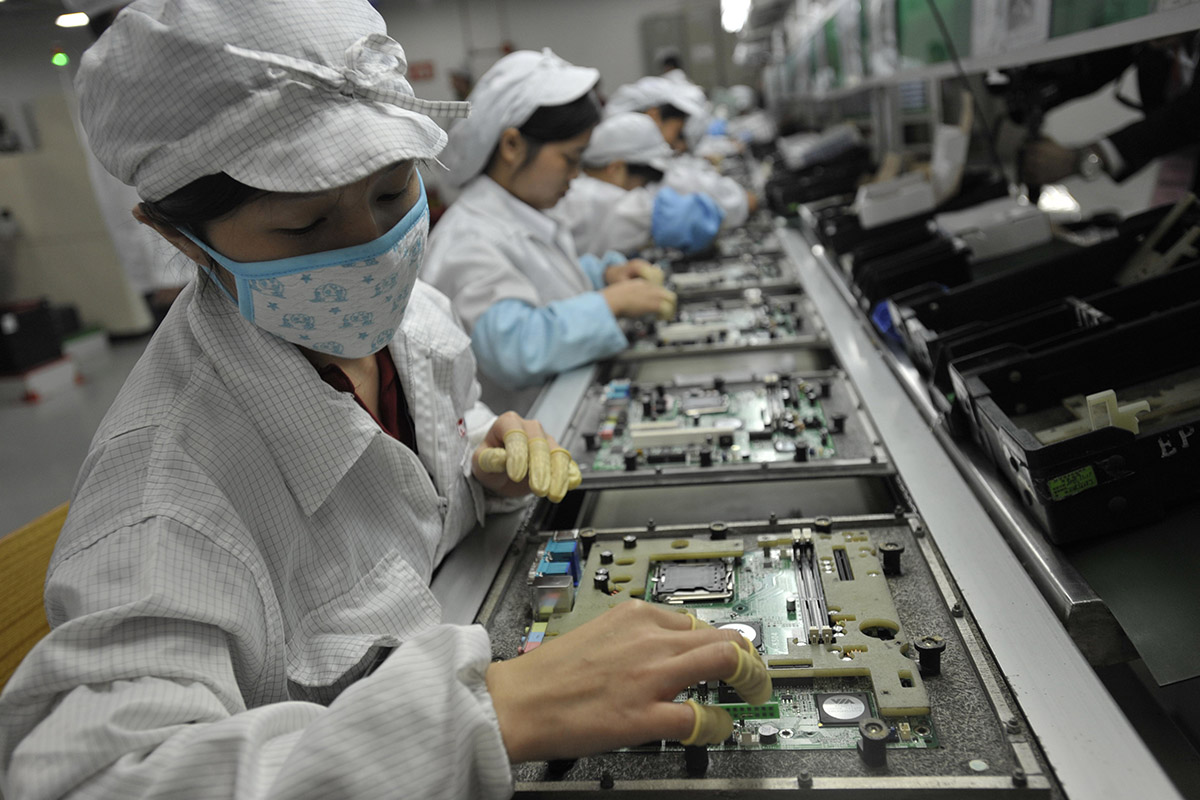In operation for more than 40 years, this outfit has grown to $106 billion in assets with investments in more than a dozen countries. Most of that is in China. Its returns probably wouldn't have you popping champagne – 12.8 percent last year on a return-on-equity basis, 4.6 percent if you're looking at return on assets. But it has never posted a loss, so that's something. Its founder and chief executive officer is a 67-year-old billionaire while its CFO is a low-key long-termer affectionately known as Money Mama.
Oh, and it also makes iPhones for Apple Inc., PlayStations for Sony Corp. and routers for Cisco Systems Inc.
Hon Hai Precision Industry Co. isn't technically a hedge fund. But, you know, if it looks like a duck and quacks like a duck. And it does a lot of quacking: At the end of 2016 the flagship of Terry Gou's Foxconn Technology Group held more than US$20 billion of hedging instruments in the form of swaps and forwards contracts.
And lest you think hedge funds are only about shorting stocks or trading commodities, it's worth noting that Westport, Connecticut-based Bridgewater Associates, the world's largest at around US$160 billion in assets, has dabbled in such humdrum investments as equity ETFs.
Taipei-based Hon Hai gets about half its revenue from Apple. Yet it also makes a lot of money from activities that don't involve thousands of people working on a factory floor. In fact, profits on manufacturing are pretty thin and getting thinner. The markup last year – measured as gross margin – fell to 6.44 percent.
And even that profit isn't just from product assembly. A large portion of the US$138 billion of cost of goods sold that it posted for 2017 was actually purchased by or on behalf of clients.
Foxconn gets to channel its customers' component procurement through its own books – helping it prop up the top line while taking a cut as it flows through to the bottom line. That's not money from making iPhones but from playing the margins.
Consider operating costs, and the margin drops to 2.4 percent. So the company made just US$3.5 billion last year from operations, with the amount coming purely from product assembly being substantially lower. By comparison, its non-operating profit was US$2.2 billion.
To understand the financial engineering that goes on at Hon Hai, it's helpful to examine the dozens of filings the listed entity posted to the Taiwan Stock Exchange last year; they show it's extremely busy investing in financial products. One such statement, in January 2017, says it spun a 500 million yuan (US$79 million) short-term investment into a 2.88 percent annualized return. Remember that its operating margin was 2.39 percent.
A spate of filings in the fourth quarter put Hon Hai on track to post almost NT$7 billion in disposal gains, equal to 21 percent of its operating profit for the period. Then came the Big Kahuna.
By offloading Class C shares in Sharp to its own employees, Hon Hai booked a 252 billion yen profit (US$2.4 billion). A Cayman Island company called ES Platform Ltd., supposedly owned by Hon Hai staff members, somehow managed to rustle up US$3.3 billion to buy those shares at a very healthy profit to their employer. Hon Hai says the money has gone through but wouldn't say where the cash came from.
Travis Lundy of Ballingal Investment Advisors Ltd. wrote in Smartkarma this week that one explanation could be that Gou himself is backstopping the deal. I suspect he may be right, which would mean Gou may have also fronted for that giant one-off profit boost at Hon Hai right at the end of what was looking to be a disastrous year for the company.
True to hedge-fund form, not all bets pay off. It's burning money on the revival of the Nokia brand name, while a stab at the India e-commerce market ended with its majority-controlled subsidiary FIH Mobile Ltd. losing US$200 million.
I've written before how Gou needs to wean himself off being Tim Cook's manufacturing partner. He's no Ray Dalio, but Foxconn's financials show that Gou does in fact know a few more tricks.
